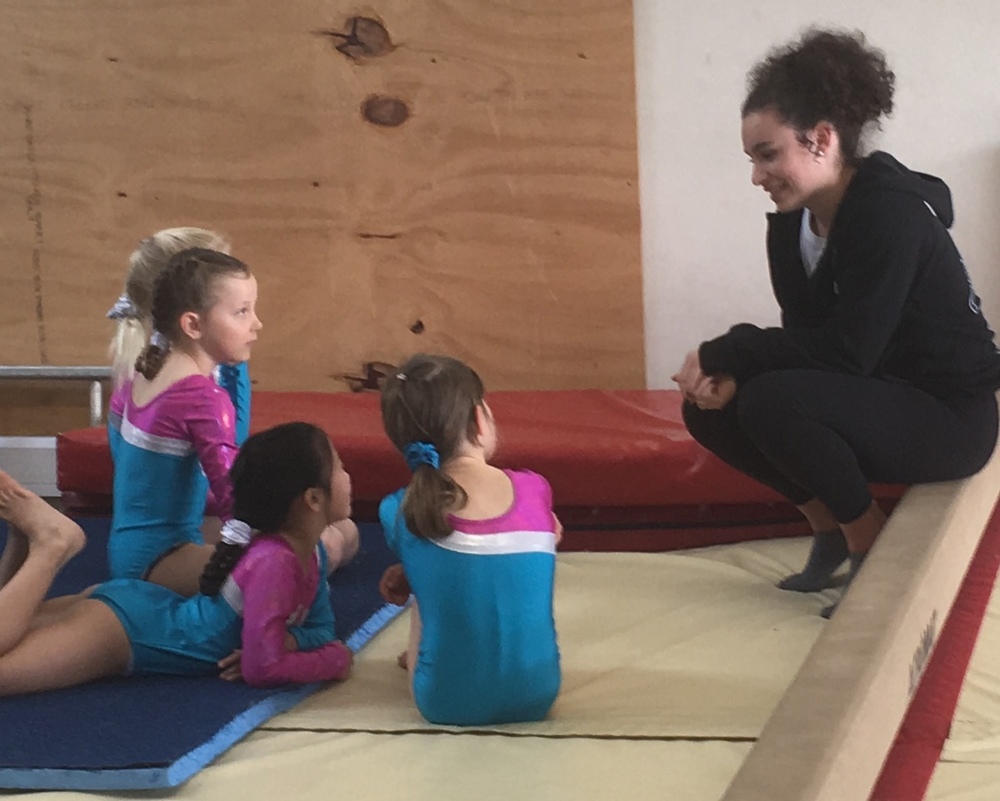Local club welcomes review following national abuse allegations
Sue Wards, Editor
17 February 2021, 5:04 PM
 Wanaka’s local gymnastics club contributed to the review, which calls for a shakeup in the sport.
Wanaka’s local gymnastics club contributed to the review, which calls for a shakeup in the sport.Wanaka’s gymnastic club has welcomed the recommendations of an independent review of Gymnastics New Zealand (GNZ), which has called for a shakeup in the sport following abuse allegations.
The review was initiated by GNZ in August last year, following media reports of past incidents of alleged abuse toward gymnasts in New Zealand.
Aspiring Gymsports took part in the review process, and reported that two members - both former gymnasts - had experienced abuse, but not within a local club.
The review panel, which includes David Howman, former Silver Fern Dr Lesley Nicol, and former gymnast Rachel Vickery, received more than 200 submissions, and lengthy interviews were conducted with about 100 people during the review.
They concluded that gymnastics retains a strong base, “but scars exist and the damage that has caused those scars needs to be repaired”.
Need for ‘a reset’
Their report identified ten main themes: the negative effect on health and well-being of athletes, gymnasts’ “lack of voice”, fear of retribution when speaking up about alleged abusive practices, unrealistic expectations, power imbalances and lack of trust within the community, and insufficient education.
The review called for a “reset to create togetherness”, and a steering committee is to be set up to implement a range of recommendations.
These include a formal apology and acknowledgement of harm to members of the gymnastic community affected by abuse or inappropriate behaviour over the past four decades; and the creation of a restorative process for abuse survivors.
Aspiring Gymsports head coach Rae Paterson said the local club welcomed the findings and recommendations.
“The review gave an opportunity for members to report concerns of any kind,” Rae said.
“We are sorry some gymnasts in our sport have had distressing experiences, we recognise that the majority of the participants of the review were involved in historical cases connected to overseas coaching methods and practises which are not part of our club philosophy.”
Overtraining, body shaming
Two coaches from Aspiring Gymsports experienced different forms of abuse as ex gymnasts, Rae said.
One, who will be participating in the independent review, suffered emotional and physical abuse as a gymnast between 2007-2009 in another club within New Zealand. This involved a coach from another country, Rae said.
“The other coach is participating in ‘The Whyte Review’ investigation into coaches involved in abuse of gymnasts in Britain. Between 2000-2009, this ex gymnast suffered serious physical injury from overtraining and body shaming, while in a normal growth phase of physical development,” she said.

Olympic gymnast Courtney McGregor with Aspiring Gymsports gymnasts last year.
“In contrast, our club runs classes specifically for this age group, with the emphasis on building physical confidence, self-esteem and having fun.”
Rae said it is important that GNZ recognises the importance of not over-training gymnasts.
“...there is a general lack of knowledge about the onset of puberty and how it affects male and female gymnasts differently,” she said.
“In males, puberty is seen as the time where strength and power develop to improve skills in their sport whereas in females, especially those who have over-trained from a young age, the new weight distribution can mean having to relearn skills, which can be distressing and frustrating for gymnasts. Mismanaged by coaches and sometimes parents, due to lack of knowledge, can lead to gymnasts leaving the sport.”
The club follows ACC recommendations that children should train no more hours than their age; a ‘balance is better’ approach to training; and encourages gymnasts to participate and explore other sporting opportunities.
Local policies
Rae said Aspiring Gymsports continues to develop and review sound procedures and policies to follow when employing coaches.
The club’s checks red-flagged a coach who had applied for a position in the club in the past, she said.
“After following club policy and checking references, the coach’s application did not proceed any further.”
The club’s coaches work in teams, Rae said, and the club committee is constantly updating Health and Safety plans to ensure that gymnasts and coaches are well supported in their physical and mental health.
The club (an incorporated society with charitable status governed by a voluntary committee of parents) will have been operating in Wanaka for 19 years this April. This term there are 139 gymnasts in recreational classes and 39 in competitive classes; with six adult coaches, seven high school students, and three volunteer coaches. More than a hundred families attend drop in pre-school classes for Mini Muscles.
“The club has very clear codes of conduct for gymnasts, coaches and parents,” Rae said, and all coaches are police checked from age 14 and the club pays towards first aid training, coach qualifications and termly coach training sessions.
Aspiring Trampolining’s Catherine Pell told the Wanaka App she also contributed to the review as a coach, judge, parent and former participant.
She said she was unaware, because the process was confidential, whether other locals submitted to the review.
“As with the whole gymsports community, I also welcome the review findings and the plans to implement the recommendations suggested in the report,” she said.
Burden on volunteers
Rae said another area recognised in the review is the increasing burden on volunteers and the huge tasks and responsibilities assigned to committees.
“Employment issues, facility and lease arrangements, all need input from those with specialist knowledge,” she said. “There is constant stress involved with trying to operate a community club in a ‘not fit for purpose‘ facility, not being able to run all classes within the code because of facility size.”
The ongoing need for additional funding while paying commercial rent makes it difficult to operate, she said, “especially when most other sports/activities in our community have the use of council venues or council subsidised rental/lease arrangements”.
“These are all issues which affect our club. Support in these areas will be welcomed,” she said.
Next steps
Even though the review findings are out, it is not too late for people to share their concerns. GNZ advises people with a complaint or concern they wish to have confidentially and independently addressed to go through Sport NZ’s independent complaint mechanism to submit a complaint, or telephone 0800 776 788 for a confidential call.
Read the full report here.
PHOTOS: Supplied





